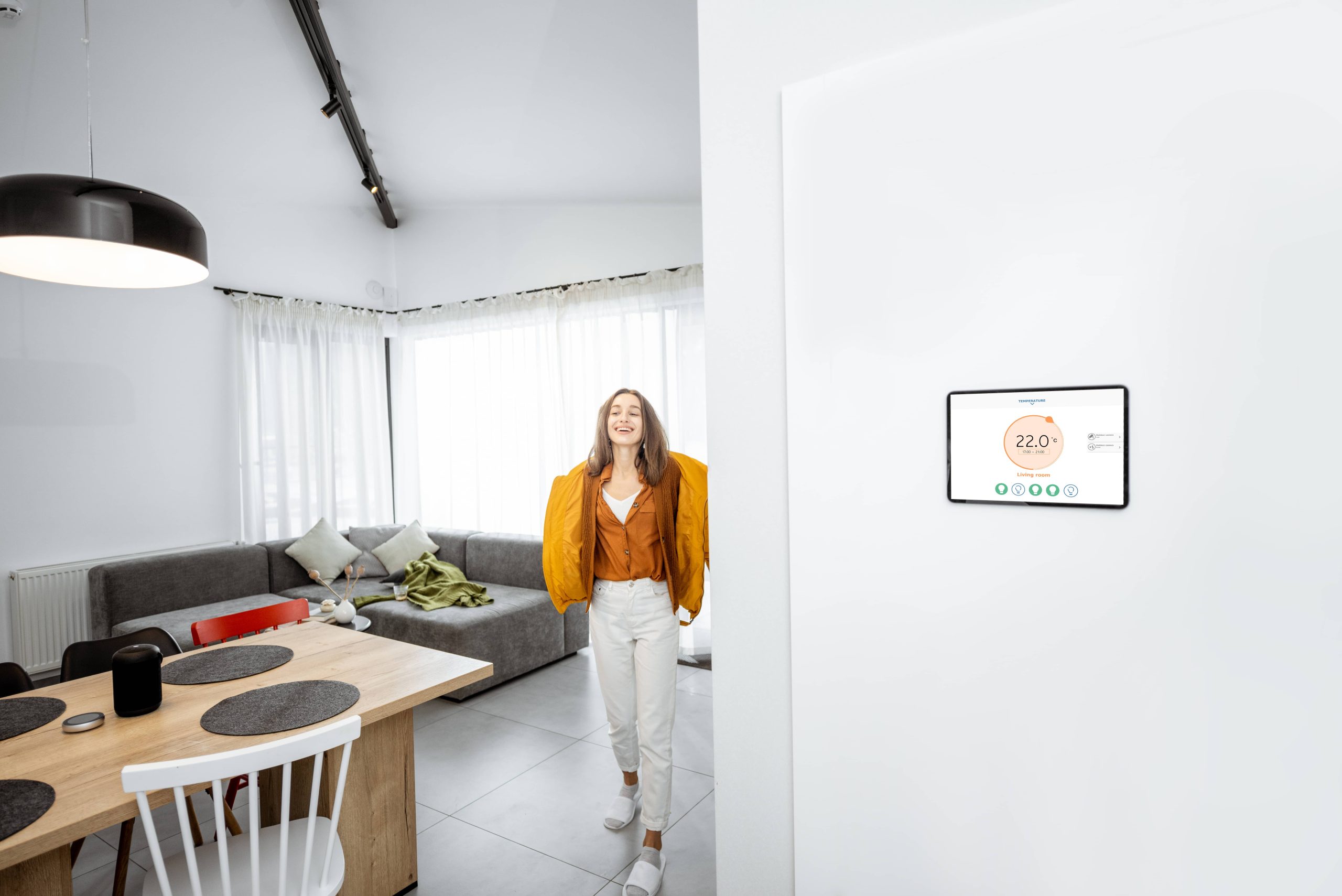
As we move towards a more sustainable future, the concept of a smart home is evolving rapidly. By 2025, energy efficiency will be at the forefront of smart home technology, offering homeowners not only convenience and security but also significant savings on energy bills and a reduced carbon footprint. In this blog post, we’ll explore some of the most promising energy-efficient smart home upgrades that you can consider for your home in 2025.
1. Smart Thermostats
Smart thermostats have been around for a while, but by 2025, they will be more advanced than ever. These devices learn your schedule and preferences, adjusting the temperature automatically to ensure comfort while minimizing energy use. The latest models will integrate with other smart home devices, using data from motion sensors and weather forecasts to optimize heating and cooling. This means your home will always be at the perfect temperature without wasting energy.
2. Energy-efficient Lighting
LED lighting has already made a significant impact on energy consumption, but the future holds even more efficient solutions. Smart lighting systems in 2025 will use advanced sensors and AI to adjust brightness and color temperature based on the time of day and occupancy. These systems will also integrate with smart home hubs, allowing you to control lighting remotely and set schedules to ensure lights are only on when needed.
3. Smart Appliances
By 2025, smart appliances will be a staple in energy-efficient homes. These appliances will communicate with each other and with the smart grid to optimize energy use. For example, your dishwasher might run during off-peak hours when electricity is cheaper, or your refrigerator could adjust its cooling cycle based on the ambient temperature. These smart appliances will not only save energy but also extend the lifespan of the devices by reducing wear and tear.
4. Solar Panels and Energy Storage
Solar panels are becoming more affordable and efficient, making them a viable option for many homeowners. By 2025, advancements in solar technology and energy storage will allow homeowners to generate and store more energy than ever before. Smart home systems will manage this energy, using it when needed and selling excess back to the grid. This not only reduces reliance on fossil fuels but also provides a potential income stream for homeowners.
5. Smart Windows and Blinds
Smart windows and blinds will play a crucial role in energy efficiency by 2025. These systems will automatically adjust to control the amount of natural light and heat entering your home. For instance, smart windows can tint automatically to reduce glare and heat during the hottest parts of the day, while smart blinds can open and close based on the sun’s position. This reduces the need for artificial lighting and air conditioning, saving energy and money.
6. Home Energy Management Systems
A comprehensive home energy management system (HEMS) will be essential for maximizing energy efficiency in 2025. These systems provide real-time data on energy consumption, allowing homeowners to identify areas for improvement. HEMS can also automate energy-saving actions, such as turning off lights in unoccupied rooms or adjusting the thermostat when no one is home. By integrating with other smart devices, HEMS can create a seamless and efficient home environment.
7. Water-saving Technologies
Water conservation is an important aspect of energy efficiency, and smart home technology will offer innovative solutions by 2025. Smart irrigation systems will use weather data and soil moisture sensors to water your garden only when necessary, reducing water waste. Inside the home, smart faucets and showerheads will monitor usage and provide feedback to help you conserve water. These technologies not only save water but also reduce the energy needed to heat it.
Conclusion
The smart home of 2025 will be a hub of energy efficiency, offering homeowners the tools to reduce their environmental impact and save money. By investing in these smart home upgrades, you can create a more sustainable and comfortable living environment. As technology continues to advance, the possibilities for energy-efficient smart homes are endless, making it an exciting time to be a homeowner. Embrace the future and start planning your smart home upgrades today!













